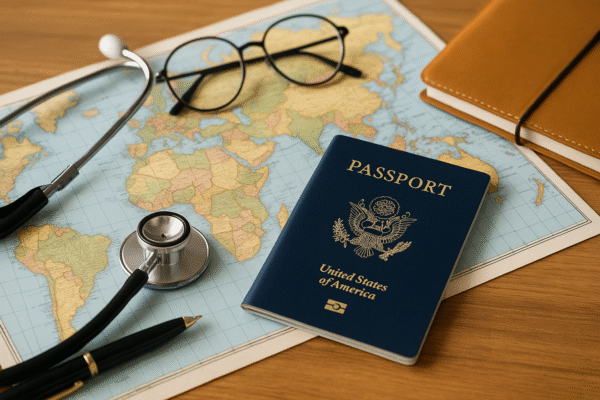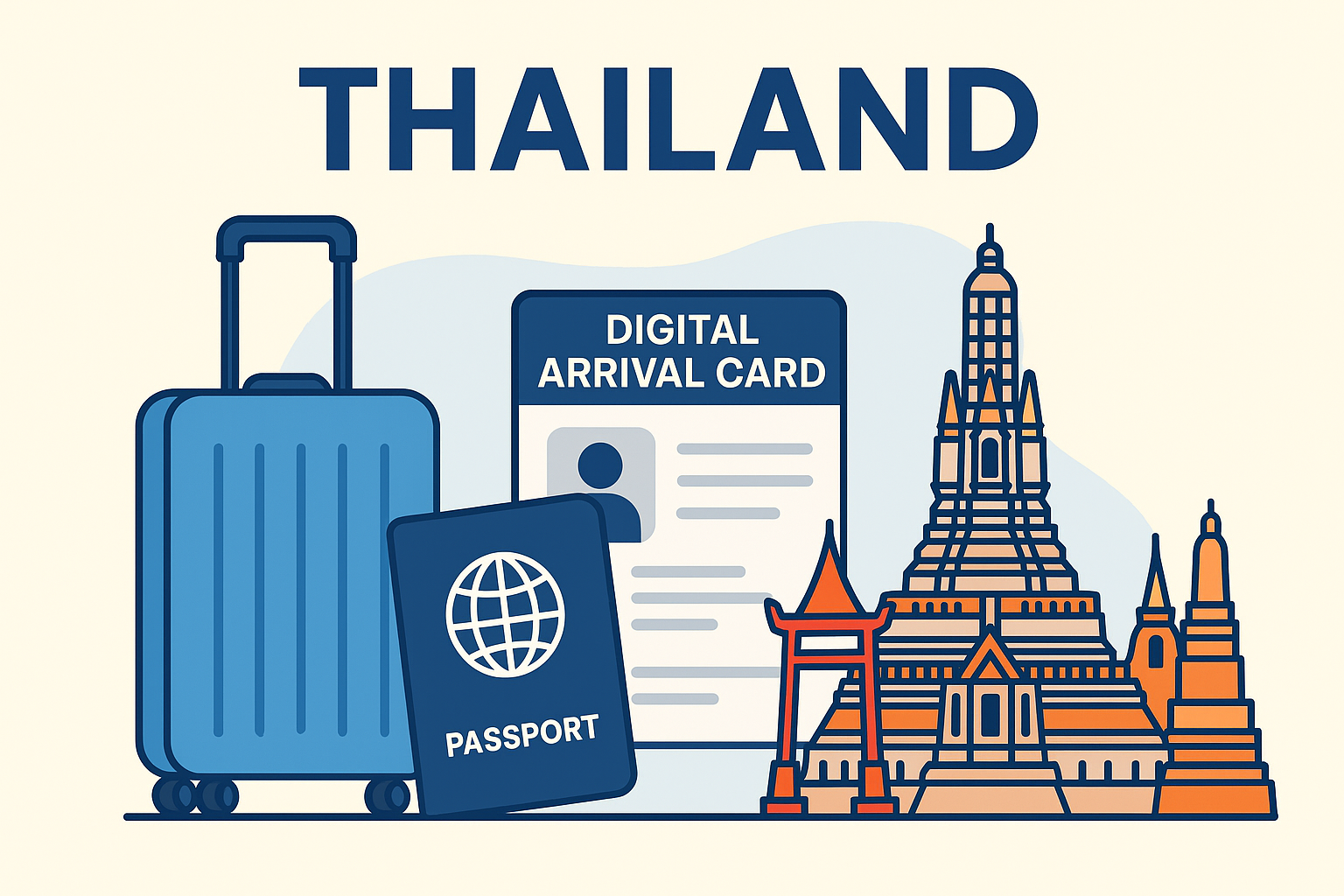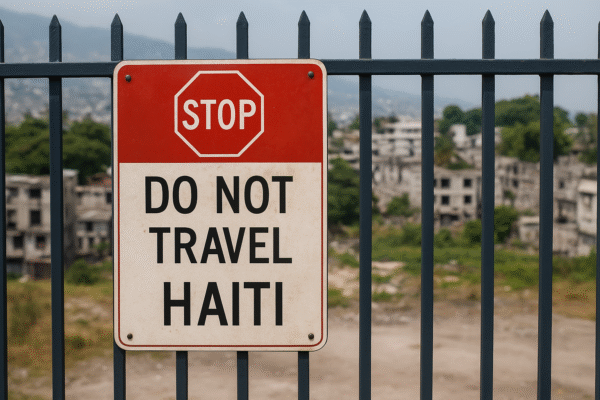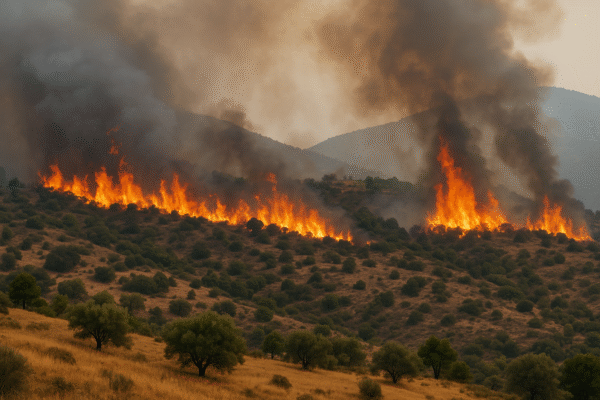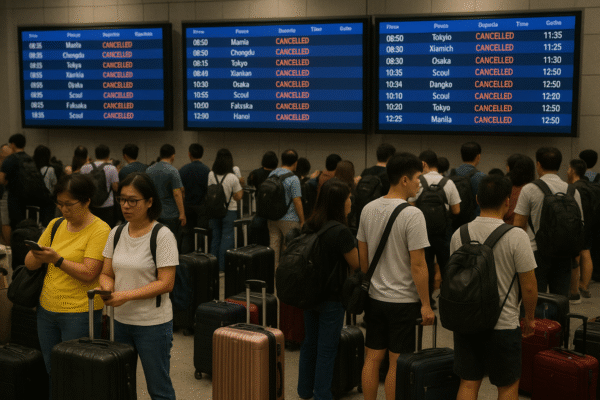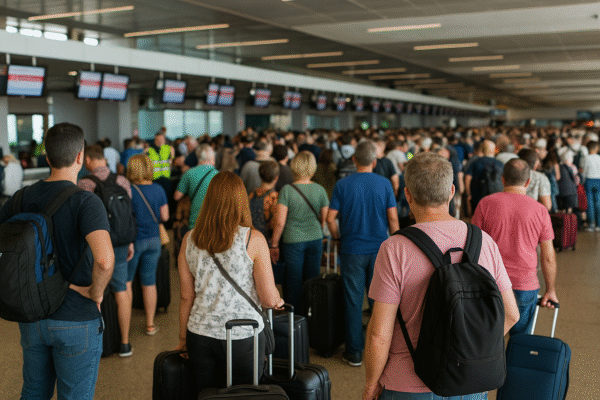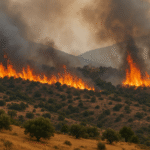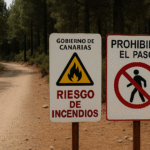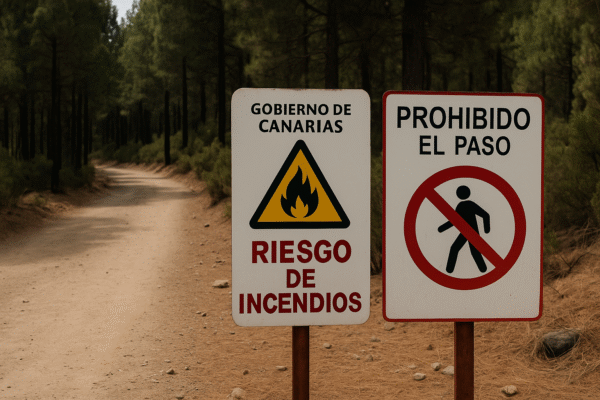The U.S. Department of State has issued its most severe travel warning for Haiti, placing the Caribbean nation on the Level 4: Do Not Travel list alongside countries such as Russia, North Korea, Iran, Libya, Lebanon, and Somalia. The advisory, updated on July 15, 2025, reflects the dire security situation on the island, where violent gang activity and terrorism-related violence have rendered the destination increasingly unsafe for both locals and foreign visitors.
Haiti Becomes Only Caribbean Country on Level 4 List
Once celebrated for its cultural richness and stunning coastal landscapes, Haiti now stands as the only Caribbean country under a U.S. Level 4 travel advisory. The decision follows an alarming rise in criminal violence, kidnappings, and terrorist-designated gang activity that has overtaken key urban areas, including Port-au-Prince.
According to the State Department, gangs in Haiti are now being classified as terrorist organizations, and the scope of their operations has intensified to include random violence, roadblocks, armed assaults, and territorial seizures. These developments place tourists at heightened risk of being caught in the crossfire of gang warfare or targeted for ransom kidnappings.
Emergency Services Overwhelmed Amid Infrastructure Collapse
The situation is exacerbated by Haiti’s fragile infrastructure and overwhelmed emergency response systems. The Haitian National Police, already underfunded, is struggling to maintain public order. Basic necessities such as fuel, electricity, clean water, and medical supplies remain scarce in many parts of the country. Reports from the Pan American Health Organization (PAHO) confirm that hospitals and clinics are under severe strain, lacking both personnel and equipment to manage the volume of casualties from ongoing violence.
In many cases, upfront cash payments are required before receiving medical treatment, further complicating the situation for foreign nationals needing urgent care. Roads to medical facilities are often blocked by gangs or impassable due to damage, making emergency evacuation nearly impossible without significant risk.
U.S. Evacuates Personnel and Suspends Flights
In response to the growing crisis, the U.S. Embassy in Port-au-Prince has significantly reduced staff, and non-essential personnel were evacuated in July 2023. The Toussaint Louverture International Airport has seen a steep decline in international arrivals, with most U.S. airlines suspending commercial flights to and from Haiti. Travel agencies and airlines have been instructed to discourage non-essential bookings to the island until further notice.
Additionally, Royal Caribbean International, which once operated popular Caribbean cruises to its private resort at Labadee, Haiti, has suspended all port calls to the country. The cruise line cited “passenger safety and operational feasibility” as the primary reasons for the indefinite suspension.
Travel Restrictions Enforced Under Ongoing State of Emergency
Since March 2024, Haiti has been under a nationwide State of Emergency, following the gang-led occupation of multiple neighborhoods, government buildings, and even police stations. Despite international calls for intervention and support, the government remains unable to regain full control of its capital or enforce law and order across the country.
International organizations including the United Nations, World Health Organization (WHO), and International Organization for Migration (IOM) have voiced concerns over the humanitarian implications of the crisis. Many embassies now warn their citizens to leave Haiti as soon as safely possible, citing the unpredictability of violence and poor infrastructure.
Haiti’s Tourism Sector Collapses
Tourism, once a modest but promising sector of Haiti’s economy, has been decimated by the instability. According to Haiti’s Ministry of Tourism, visitor arrivals have dropped by over 85% since early 2024, with major tour operators pulling out of the market entirely.
Attractions that once drew visitors—including historic Jacmel, the Citadelle Laferrière, and white-sand beaches like Port Salut and Cap-Haïtien—now sit abandoned or inaccessible due to security risks. Small businesses, including locally owned hotels, guesthouses, and restaurants, face financial ruin.
Comparison with Other Level 4 Countries
Haiti now joins a list of nations that pose “high risks of life-threatening dangers” to travelers, according to the U.S. Department of State. These include conflict zones and politically unstable regions like Libya, Iran, and Somalia. Placement on the Level 4 list typically signals active armed conflict, systemic government collapse, or unmanageable violent crime rates.
What Travelers Should Know
Americans and international travelers are strongly advised to avoid all non-essential travel to Haiti. Those currently in the country should leave as soon as possible using commercial or charter transportation where available.
The U.S. government emphasizes that consular assistance may be limited, and evacuation services are not guaranteed. All travelers are urged to enroll in the Smart Traveler Enrollment Program (STEP) and monitor real-time travel alerts from the U.S. Embassy in Haiti and travel.state.gov.
Conclusion: Haiti Unsafe for Tourism Until Further Notice
In light of worsening conditions, Haiti is no longer a viable or safe destination for tourists in 2025. The combination of terrorist-designated gangs, failing infrastructure, and overwhelmed emergency services has made travel to the country perilous. Until meaningful reforms and security improvements are in place, travelers are advised to prioritize safety over exploration and seek alternative destinations in the region.
As of now, there is no clear timeline for when Haiti might recover as a tourist destination. The situation serves as a tragic reminder of how rapidly conditions can deteriorate in vulnerable regions—and how critical it is for travelers to remain informed and cautious when planning international travel.
For more travel news like this, keep reading Global Travel Wire


